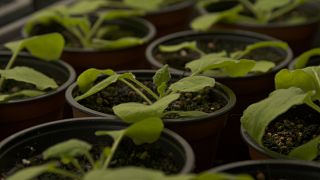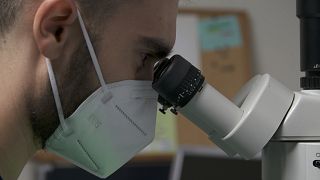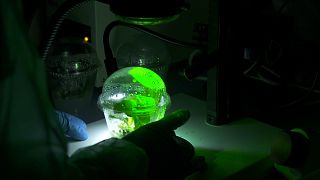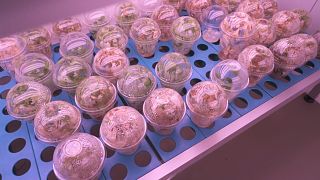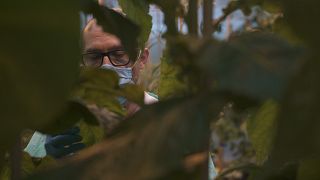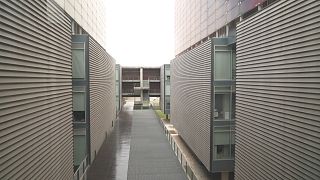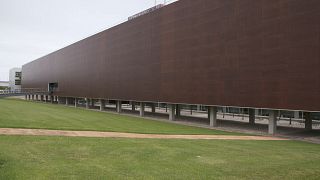Powerful properties: how tobacco is being used to fight COVID-19
euronews_icons_loading
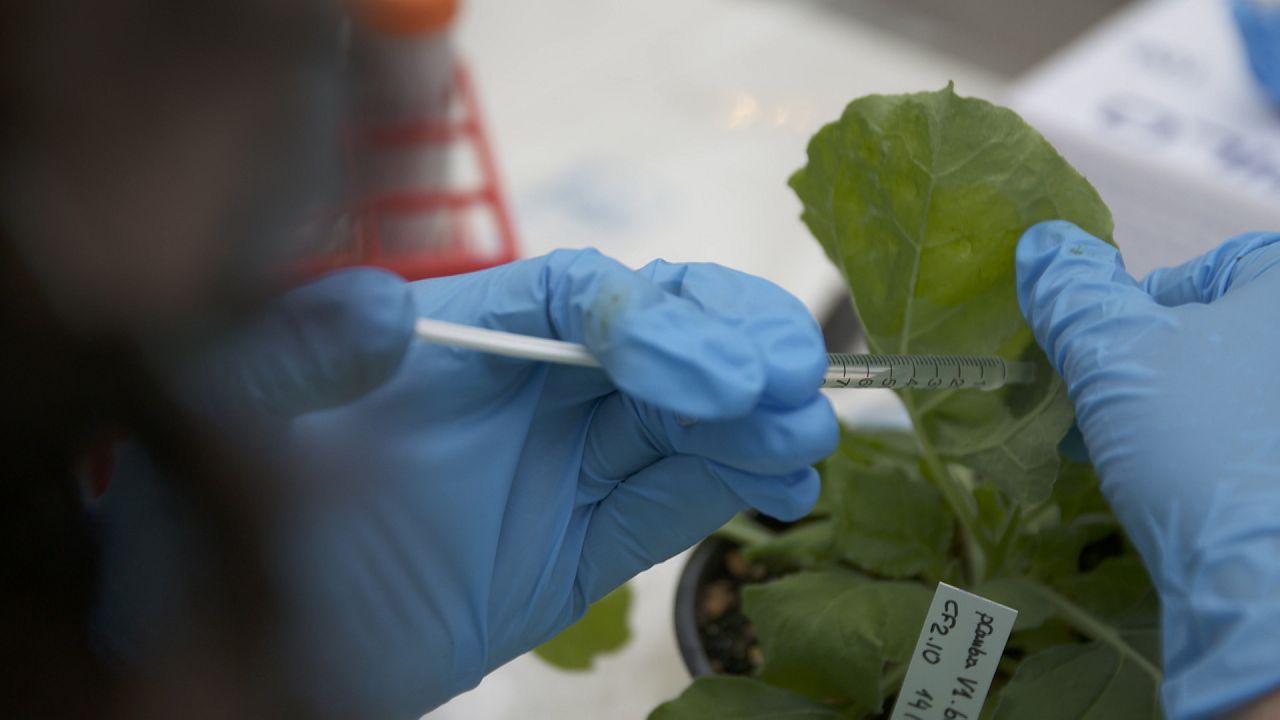
Could tobacco help in the fight against coronavirus? As researchers all over the world race to develop a vaccine for COVID19, Futuris takes a look at how scientists in Spain are using molecular farming to help build tailor-made vaccines and antibodies.
At the Institute for Plant Molecular and Cellular Biology in Valencia, a team of top scientists are attempting to harness the power of nature.
Using the latest techniques to cultivate and sequence the genome of the Nicotiana Benthamiana, a close relative of the tobacco plant, researchers taking part in the European funded Newcotiana project say they are able to produce tailor-made molecules to fight disease.
“Many medicines we use today are extracted from plants, but now thanks to biotechnology we are able to manufacture other substances from plants, different from those which they produce naturally. We do that by introducing genetic material into their genome. This contains information that enables the production of medicines such as antibodies, vaccines and other products.”Diego Orzáez
Newcotiana Project Coordinator
Native to Australia, the Nicotiana Benthamiana plant has been used to help produce vaccines and antibodies for viruses such as Ebola.
By injecting other DNA into its leaves, its genes can be modified to create specific pharmaceutical products in very large amounts.
"We give the plants instructions to improve them, to change specific genes. For example, we are interested in having plants that do not flower. We want to grow plants that produce more biomass, because those are the kinds of things we want the plant to do," says Marta Vázquez, a biotechnology research at IBMCP.
Hopes are high the technique, which harnesses the plant's cells and sap, could eventually help pave the way to producing a COVID-19 vaccine. Experts say the approach has several advantages. It can produce large amounts of the required protein, is low-cost compared to other methods and and is safe.
“Plants are very useful for researchers as they are another mean of expressing viral proteins or nucleic acids without having to actually work with the causative virus itself. And we can use techniques of synthetic biology to make things like virus-like particles without handling the infectious virus,” says George Lomonossoff, a virologist at the John Innes Centre.
The modified plant can generate proteins similar to those found in a human cell. Researchers say a growing number of companies are embracing this technique.
"There are about a hundred groups in the world that are trying to develop SARS COVID-2 vaccines. Some of these groups and private companies are using this plant, whose genome we have sequenced. Making the genome available...will help these firms optimise this production," insists Giovanni Giuliano, Research Director at Italy’s National Agency for New Technologies, ENEA.
By making the plant’s genome publicly available, scientists at the EU funded project hope it will speed up the search for new products that will fight both the current and future pandemics.
Drone and harvesting pictures courtesy of Biofaction.
